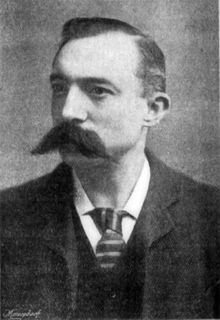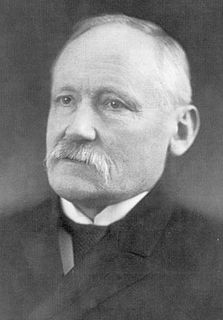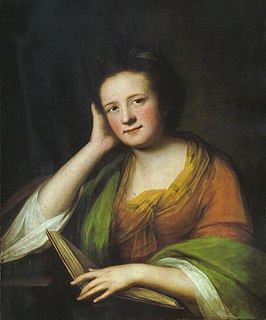A Quote by Paul Laffoley
Now, we know this is what [H.P.] Lovecraft was into. Because he kept talking about how he wasn't interested in religion. In a heaven state there is no religion, meaning that you're seeing the whole thing ... I mean, to worship something means that it's something beyond you, right? In other words, it's not being revealed to you.
Related Quotes
It's perfectly clear to me that religion is a myth. It's something we have invented to explain the inexplicable. My religion and the spiritual side of my life come from a sense of connection to the humankind and nature on this planet and in the universe. I am in overwhelming awe of it all: It is so fantastic, so complex, so beyond comprehension. What does it all mean -- if it has any meaning at all? But how can it all exist if it doesn't have some kind of meaning? I think anyone who suggests that they have the answer is motivated by the need to invent answers, because we have no such answers.
We [Americans] have secularized the public life of our country in such a way to say something is religious is something negative. Religion has now turned into a way to discredit people. It is futile and dishonest to argue about religion. Religion is a phenomenological umbrella; there are all kinds of religions. It makes a difference when your religion is telling you something true or something false.
I'm not criticizing how people experience what they might call spirituality. I am interested in looking critically at something else - at how people use their language to articulate theories about something they call religion, to say, for example, that "in Islam religion and politics necessarily go together," or to insist that "violence has no place in religion," to universalize it.
The word religion comes from an origin which means "coming together." But priesthood has been doing just the opposite, it has created splits in man, not oneness. Religion means creating in man an organic unity; it has nothing to do with God, it has something to do with you. It has nothing to do with worship, it has something to do with a transformation of your own consciousness.
It's when people begin using their religion as just a way of getting power over other people that scares me. I'm afraid that's what's going on in a lot of cases right now. When people deliberately tell lies, Creationism for instance, and pretend, "Oh, it's not really religion." I mean they know they're lying, and yet they're the religious people. There's something wrong there.
In our decrees, it is definitely proclaimed that religion is a question for the private individual; but whilst opportunists tended to see in these words the meaning that the state would adopt the policy of folded arms, the Marxian revolutionary recognizes the duty of the state to lead a most resolute struggle against religion by means of ideological influences on the proletarian masses.
Taoism ... is the Religion of the Tao, a term meaning Path or Way, but denoting in this peculiar case the way, course or movement of the Universe, her processes and methods. In other words, Taoism is the Religion of Heaven and Earth, of the Cosmos, of the World or Nature in the broadest sense of these words. Hence we may call it Naturism.
Religion is the vision of something which stands beyond, behind, and within, the passing flux of immediate things; something which is real, and yet waiting to be realised; something which is a remote possibility, and yet the greatest of present facts; something that gives meaning to all that passes, and yet eludes apprehension; something whose possession is the final good, and yet is beyond all reach; something which is the ultimate ideal, and the hopeless quest.
The separation of church and state is necessary partly because if religion is good then the state shouldn't interfere with the religious vision or with the religious prophet. There must be a realm of truth beyond political competence, that's why there must be a separation of churches, but if religion is bad and a bad religion is one that gives an ultimate sanctity to some particular cause. Then religion mustn't interfere with the state - so one of the basic Democratic principles as we know it in America is the separation of church and state.
We have been saying, Lucy, that 'tis the strangest thing in the world people should quarrel about religion, since we undoubtedly all mean the same thing; all good minds in every religion aim at pleasing the Supreme Being; the means we take differ according to where we are born, and the prejudices we imbibe from education; a consideration which ought to inspire us with kindness and indulgence to each other.
Religions are not revealed: they are evolved. If a religion were revealed by God, that religion would be perfect in whole and in part, and would be as perfect at the first moment of its revelation as after ten thousand years of practice. There has never been a religion which fulfills those conditions.
If you're a poet, you do something beautiful. I mean, you're supposed to leave something beautiful after you get off the page and everything. The ones you're talking about don't leave a single, solitary thing beautiful. All that maybe the slightly better ones do is sort of get inside your head and leave something there, but just because they do, just because they know how to leave something, it doesn't have to be a poem for heaven's sake. It may just be some kind of terribly fascinating, syntaxy droppings--excuse the expression. Like Manlius and Esposito and all those poor men.
I was raised in a religious home. It was unreasonable enforced religion that turned me off it. It was a joyless, unpleasant, stupid, barbaric thing when I was a child and I've never gotten over that feeling. If you're talking about religion it's one thing; I don't hold Jewish religion with any more seriousness than I would any other.
Art is not a substitute religion: it is a religion (in the true sense of the word: 'binding back', 'binding' to the unknowable, transcending reason, transcendent being). But the church is no longer adequate as a means of affording experience of the transcendental, and of making religion real - and so art has been transformed from a means into the sole provider of religion: which means religion itself.































